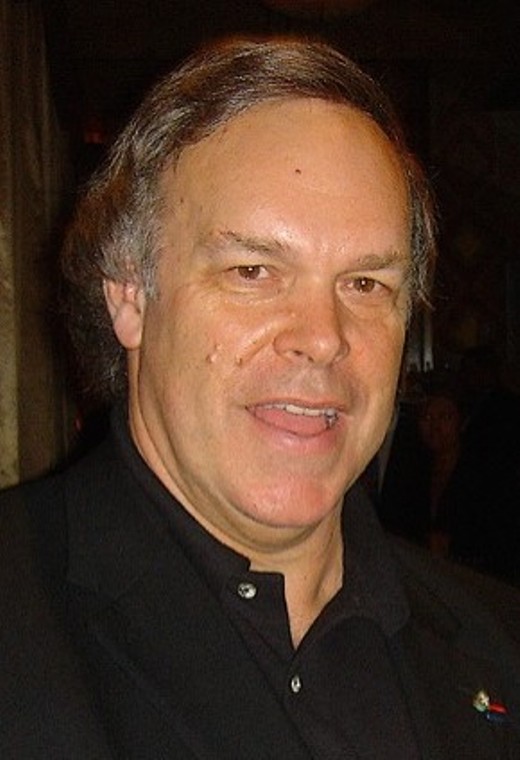There are many voices in the wine world, but there is only one Robert Parker.
A while ago, while lying in bed sick, flipping through the channels, I came across a documentary about Johnny Carson. I had watched him on the Tonight Show for years. I remember the night when Johnny Carson retired. He was a legend, an institution. Every single famous comedian interviewed on the documentary said the same thing: they were entirely obscure before Johnny’s stamp of approval and a runaway professional success afterwards. He made the careers of just about every comic of his time. Moreover, he never destroyed any, when he easily could have.
How can one boy from a typical Nebraska family develop a Midas-touch? How could such a humble man transform late night TV? The answer is simple.
He was flawed, as we all are, but he had a solid work ethic, integrity, class, and style. Attributes to which we nostalgically refer to today as “old school.” Despite being a recluse in his private world, he loved people. He particularly loved his fellow comedians. He offered them copious amounts of support and good will. He sincerely, and generously laughed at other people’s jokes. He was honest and loyal.
Measuring up to greatness is daunting. Being a profoundly decent human being appears even harder.
So what does Johnny Carson have to do with the renowned wine critic, Robert Parker?
My first encounter with Robert Parker occurred at his favorite restaurant, Daniel. While waiting for a colleague at the tiny bar in front of the dining room, I turned in my chair and saw a man smiling warmly at me, nodding hello. I instinctively grabbed on to my chair for fear of sliding off due to sheer shock. A man whose newsletters I had fallen asleep with nearly every night for several years, was right in front of me. I incoherently mumbled hello. I was so star-struck, that, to this day, I can’t remember what I said next. What I do remember is the kindness he showed me, a complete stranger. Several brief encounters later confirmed that he was an accomplished man, with no ego. He projected class, integrity and humility, in a simple, and authentic way.
I doubt he remembers this mesmerized, stuttering blonde. However, he had a greater impact on my world than he could ever know. He taught me, by example, how to be unapologetically passionate about things that matter. His childlike excitement about wine (much like Johnny Carson’s infectious, sincere laughter over other comedians’ skits), was encouraging in ways I can never quantify.
There are plenty of trends in the world of wine. There was the Chardonnay trend, and then a Merlot movement which, spurred on by the movie “Sideways,” was replaced by the Pinot parade. There is the “biodynamic trend,” which sounds impressive, but few really understand what that means. The trend d’jour is “low alcohol,” which promotes the dubious concept that low alcohol level equals balance. Half baked, self-professed, “experts” are busily indoctrinating unsuspecting consumers with their peculiar brand of wine-dogma.
Today there are those that professed to save us from “Parkerization,” a backhanded acknowledgement of Parker’s influence. There are those that call for him to get into social media and interact with all of his critics (perhaps they want to become his new “BFF.”) Parker, thus far, has stayed above the fray, and firmly rebuffed any notion of stylistic preferences that are exclusionary. Owning a palate does not make you a mercenary on its behalf, it makes you human.
Given the wine world’s wild mutations, Parker’s consistency is pretty remarkable. Despite being self-professed “Francophile,” he elevated the awareness of New World wines. He has particularly helped bring California wine to the world stage.
Does personal integrity have bearing on a professional success, does it translate? Absolutely. Does it matter in a wine critic? I would argue that it matters more than having a super-palate. His simple goal is to help consumers find the world’s best wines—regardless of style, appellation or price. This focus on excellence can be controversial. Often, his harshest critics appear to have rather obvious, self-serving agendas. His only agenda is to find and celebrate the world’s finest wines.
Parker is a profoundly gracious human being. Like Johnny Carson, he never buried anybody. Also like Carson, people famously and callously betrayed him. However, they both handled such incidents with style and grace. That’s why there likely won’t be another Johnny Carson. And that’s why there won’t be another Robert Parker. These are the “real deal” human beings, real stars, with lasting, timeless appeal.
He has earned the awesome power he holds within the wine industry, yet he has never taken advantage of that power or used it to destroy others in the process. He understands the responsibility that comes with being an industry luminary. If one could bottle his integrity, it would rate 100 points on my scale!
Carson gave way to Leno who has since been followed by Jimmy Fallon.
Wine Advocate has a fantastic team of writers, but whomever emerges as heir apparent will have larger than life shoes to fill, and will be privileged to continue the legacy of bottled prose.





